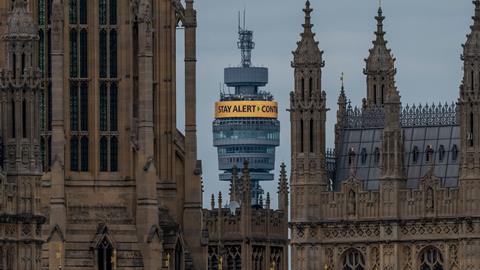There are increasing calls from all over the UK for an inquiry into how the UK government has handled the response to coronavirus. It won’t be long before those demands become increasingly insistent.
Much debate will centre around timing: did the government act too slowly when it could see the virus coming our way, and was it in any way as prepared as it should have been?
Whilst the situation is improving, there are many incredible workers in our hospitals, care homes, carers, police, army etc. still on the frontline. There are serious current questions over the government’s responses and the measures taken. This includes the reallocation of medical specialists, the prioritisation of coronavirus patients over other areas of healthcare, why were those in care homes and other vulnerable people in different parts of society left to fend for themselves for so long… testing, timing, schooling, quarantine and so on.
As we consider these things, the place to look is right under our nose.
The ongoing Infected Blood Public Inquiry remains to date by far the largest public inquiry this country has held. It has its issues – sadly many of those it is seeking to get answers for are dying, and the process is slow, but it could serve as a model for the coronavirus inquiry, successfully striking a balance as it does between all those who have an interest.
Other high profile and ongoing inquiries face different challenges: the Independent Inquiry into Child Sexual Abuse has been too wide ranging and fraught with difficulties and the Grenfell Public Inquiry continues to be a source of considerable disagreement and unhappiness.
In this instance, I can see no alternative to a full, UK-wide statutory public inquiry with power to compel people to give evidence, under oath.
The scale and scope of the inquiry need to be clearly defined – through the terms of reference - in order to ensure it is not impossible to administer the inquiry. The details of the terms of reference need to be considered very carefully indeed. That process will need input from the representatives of all the different groups it is seeking to help from the outset, to ensure that all those who are affected are fully represented. This will ultimately bring all the different elements together.
There are significant parallels that can be drawn from the contaminated blood scandal and the coronavirus pandemic from the perspective of the goal of any inquiry: in both the remit is/would be to examine the reaction of the government and the department of health to an unforeseen crisis.
Any major, new inquiry can learn from the Infected Blood Inquiry. By acting soon - and fast - it would help to avoid another cover-up, which sadly was very much the case with the contaminated blood scandal. It might also help discourage the dissemination, on a large-scale, of scaremongering, and often confusing, public information. For example, part of the Infected Blood Inquiry remit is to look at the nationwide publicity around AIDS in the 80s which led to considerable stigma that is still with us today.
With coronavirus, we need to do this now so all the details are easily accessible and the country can get to the answers it needs.
The Infected Blood Inquiry has struggled with the volume of documents – though the current estimate of 4 million pages of documents would be dwarfed by a coronavirus inquiry. But more challenging is the fact that the Infected Blood Inquiry is examining events from recent history - 30 to 40 years ago – which means that the documents from that time are hard to find, deliberately or otherwise.
Very often it’s like putting a jigsaw together when key pieces are missing. Too frequently we have no alternative but to rely on our 1,400 inquiry clients to have kept their own records of what happened to them or their loved ones. The victims of contaminated blood and those affected by coronavirus, deserve more than this.
Secondly, this may well not be the last pandemic we face. It is clearly vital we think through our shortcomings as a nation, and ensure we are better prepared for future problems of this sort, which could come at any time. A full and fast, fact-finding inquiry has to be the first step towards this.
We need answers and we need to start asking for them now. You can bet that the government will delay as long as possible, unless there is sufficient pressure put on them to be held to account.
The calls for the Infected Blood Inquiry went unanswered for over 30 years, which is reprehensible and must not be repeated.
Whenever there is a crisis we always hear the same mantra 'we must learn from our mistakes'. We have an opportunity to do just that.
Des Collins, senior partner at Collins Solicitors, represents over 1,400 people in relation to the Infected Blood Public Inquiry
































6 Readers' comments